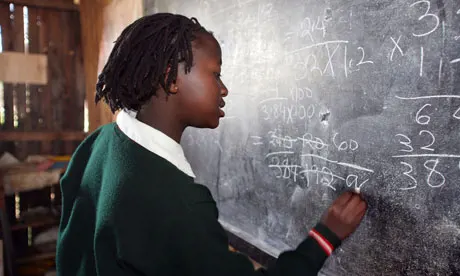This article was published in The Citizen Newspaper – Tanzania on 10th September, 2022.
Fifty-five years ago the United Nations Educational, Scientific and Cultural Organization (UNESCO) declared the 8th September as the International Literacy Day. This annual observation has survived until today.
Fifty-four different themes have been discussed and wide-reaching resolves have been undertaken. That is why we are where we are today.
The theme for the commemoration of this year is, “Literacy for a human-centred Recovery: Narrowing the Digital Divide.”
We speak of a human-centred recovery because the major goal of working to impart useful literacy is in transforming the society, not spoiling it, but bridging all facets of it globally with the initiatives, and international intersectoral collaborations. This dream makes the initiative a missing link.
The UNESCO Strategy for Youth and Adult Literacy (2020-2025) has as its goal to ensure that by 2030 all youth and a proportion of adults, both men and women achieve basic literacy and numeracy.
However, there are problems with access, standards, competency and frameworks in actualizing the global vision stipulated in the Sustainable Development Goals (SDGs). All these can be solved by quality education, which in a broader sense means high-quality, updated, informative, productive, and meaningful literacy.
The fourth SDG is quality education, with inclusivity and equal access to formal learning, skill-based learning, as well as global citizenry learning. This SDG is directly connected to human well-being as education is an indispensable and the most functional tool in achieving all other SDGs.

However, learning can be a better term, as this broad question of literacy is not fully saturated within the thresholds of education per-se.
Literacy in a widened understanding goes beyond the conventional, i.e. ‘reading and writing’ as the global dream incorporates the impartation of skills which help to nurture talents and also to foster measurable and functional participation in society.
While the superseding understanding of literacy is that of the ‘ability to read and write’, the major problem is no longer that. This is because there are many ways people get informed.
One might be among the few who are not able to read and write, and yet s/he has access to informative audio-visual media.
The problem in my informed opinion is rather in the quality of literacy, especially as per the SDG objective of reaching far from the baseline literacy to multiple literacy.
Are multiple literacies affordable and accessible?
Multiple literacy is simply the ability to access information in all media, print and electronic. There is currently an impressive interest among people, especially in African countries many of which lag way behind the global averages of 90 per cent literacy levels.
From the report of Anadolu Agency, good numbers of Africans have an interest in reading, especially in print media, but due to poverty, they cannot afford it. This they say is made evident by the commonplace gatherings around newsstands in many African countries.
While the former is accessible but not affordable, the case is different from the latter. It seems to be limitedly affordable, and as such it is inaccessible to the majority of the population.
There are still few internet users (literates) in areas far from urban cities and centres. This population, according to the study, is disproportionately rural, poor, elderly and female (The Global Education 2030 Agenda: Pearson Publishers, p. 37).
Are there any Opportunities?
The 2021 International Literacy Day Concept Note calls for the integration of youth and adult literacy into the long-term national and international learning viewpoints.
It identifies populations at great risk to be left behind, non-literate young people and adults all over the world who face intersecting disadvantages due to poverty, gender, social status, ethnicity, language, disability and geographical location. This will help heal the digital divide.
There are numerous opportunities that modern technology creates. There are chances for innovation and skill-based trades in the global labour market, but they cannot be harnessed by under-empowered people who are not well-grounded in multiple literacies.
One is practically excluded from the possibilities of literacy that he or she does not possess. This applies to conventional literacy, modern multiple literacies, and indiscriminately technical digital literacy.
We cannot but accept the fact that current technology has an integral impact on the way we live, the way we work, the ways and reasons we link with people and even the way we appreciate information. To match with the speed of the technologically advanced world, there is a need to avail ourselves of lifelong learning.
There is an interest in reading, though a lot has to be done in sensitization on sifting of information to fit the utility that is desired. Having access or skills to maximize the utility of digital platforms is not necessarily the same as yielding the best out of them. There are greater security and ethical risks for the involved population.
[Featured image by The Guardian]